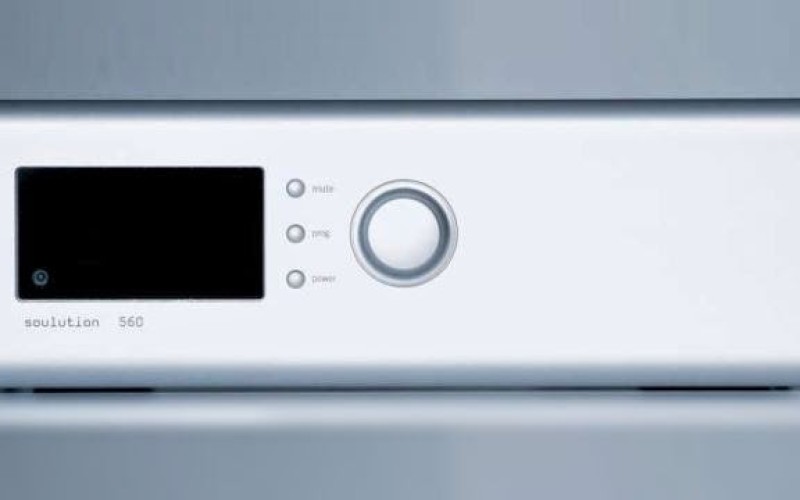Five different digital inputs (AES/EBU, SPDIF, optical, USB and LAN) ensure a versatile use of the 560 D/A-Converter. The USB interface is an asynchronous design based on a high performance DSP. It is clocked by the 560s high precision master clock and gets powered by its ultra stable power supplies (not USB bus powered!). For the LAN connection the 560 is equipped with a separate dedicated DSP that manages the communication to the local area network and does buffer and decode the incoming music signals.
All common digital formats can be received:
PCM (16bit/ 32kHz up until 24Bit/192kHz),
DXD (24bit/352.8kHz)
DSD (1bit/2.82 MHz) and double DSD (1bit/5.62 MHz).
The upsampling module of the 560 D/A-Converter has been further developed and is now based on a much more powerful DSP (32bit floating point) than was used for the 745 and 540. The additional power allows for much higher precision of the polynomial upsampling calculation process, the integration of a state of the art apodizing digital filter and has still enough computation headroom for soulution’s innovative Zero-Phase-Technology.
zerojtech (Zero-Phase-Technology)
Every D/A converter requires an analog low-pass-filter in its output in order to suppress high frequency noise and aliasing signals. The 560’s 3rd order bessel filter, with a cut-off frequency of 120kHz, would show a phase shift of up to 15° in the audio band. Due to the Zero-Phase-Technology the phase error of the analog output signal remains below 1°, 20Hz – 100kHz! The sonic impact of these seemingly small changes is tremendous.
The Zero-Phase-Technology does resolve one of the biggest problems related to digital-to-analog conversion. With the introduction of the upsampling technology low-pass-filters could be less steep than it was required with a sampling rate of 44.1kHz. But still the cut-off frequency is by far too low for not having any impact on the phase response in the audio band. Upsampling was a great step forward but did not resolve the issue completely. The Zero-Phase-Technology does overcome these short comings for the very first time.




